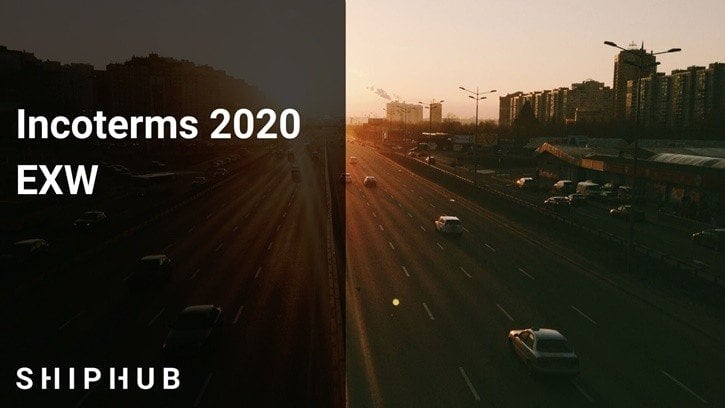The rules for international transport are defined by Incoterms. Due to many transport-related factors, such as risk transfer and allocation of costs, Incoterms rules are divided into groups. One of the groups, E group, indicates that the seller places the goods at disposal of the buyer at a place named in the contract. EXW Incoterms is an example of such a rule.
Incoterms 2020 EXW – Allocation of costs
| The seller bears: | The buyer bears: |
| costs of checking operations (checking quality, measuring, weighing, counting the goods); | costs related to import, export, and transit clearance formalities; |
| any additional costs related to the damage to the goods before delivery; | any costs related to the goods from the moment of its delivery following the contract by the seller; |
| packaging and labeling costs, unless they are not required by the chosen type of transport. | customs duties, taxes, and other charges; |
| any additional costs incurred by failing to take delivery of the goods; | |
| in addition, the buyer reimburses the seller for the costs incurred by providing to the buyer assistance with documentation for export, import or transit formalities. |
What are the seller’s obligations?
- The seller delivers the goods to the place specified by the buyer, on the agreed date or within the agreed period.
- The seller delivers the goods together with the commercial invoice in accordance with the contract of sale and any other evidence of conformity with the documents, which were mentioned in the contract (in paper or electronic form).
- At the buyer’s request provides the risk and cost of assistance in obtaining the authorization necessary for the export of goods.
- Notifies the buyer of the date the goods are left at the buyer’s disposal.
- Provides the buyer with all assistance in obtaining any documents necessary for completing export, import or transit clearance formalities.
- The seller provides the buyer with any information necessary for obtaining insurance (at his expense and request).
What are the buyer’s obligations?
- The buyer, at his own risk and cost, obtains documentation authorizing him to export and carry out all for export, import or transit clearance formalities.
- Carries out all import, export and transit clearance formalities.
- Organizes the transport of goods from the place of delivery.
- Takes the delivery of the goods and provides the seller with evidence of having taken delivery.
- From the moment the goods are delivered in accordance with the contract, he bears all the costs and risks of the goods.
- Unloads and loads the goods in the export and import port.
Delivery of goods
The moment of delivery of the goods is when they are placed at the buyer’s disposal in the previously named place (e.g. factory, warehouse or on the premises) and the agreed time. Although not legally required, it is recommended to include a specific delivery point in the contract, not just the location. However, in the case of the EXW rule, the seller is not responsible for the loading of goods, as well as carrying out export clearance formalities.
Insurance of goods on the terms of Incoterms 2020 EXW
By applying this rule, the buyer and the seller do not have to make a contract of insurance.
Incoterms 2020 EXW in transport
It appears that the EXW rule applies to any type of transport. Besides, the buyer covers all costs and organizes transport. However, the risk is transferred when the goods are at the buyer’s disposal on the seller’s premises.
The seller delivers the goods together with a commercial invoice in accordance with the contract of sale and any other evidence of conformity with the documents specified in the contract.
Incoterms 2020 EXW and other Incoterms rules
EXW Incoterms expects that the buyer will carry out export clearance formalities. Unfortunately, this is not always possible. Due to the drawback of this rule, more and more entrepreneurs opt for the FCA Incoterms delivery terms, and EXW Incoterms is mainly used for transactions within one country. The rules are similar in terms of operating principles. The difference is that in the case of FCA, the seller is obliged to carry out custom clearance formalities in his country.
As you can see, the EXW rule has not changed significantly in Incoterms 2020.
